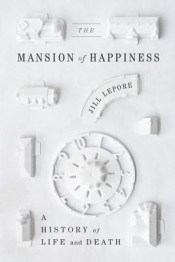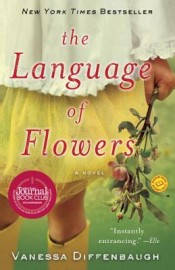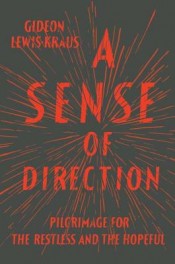 Just about a month ago I decided that I was going to go on a book buying hiatus for the summer. There were two small exceptions — if I visited a town with a bookstore, I could buy one book; if it was an independent bookstore, I could buy two books.
Just about a month ago I decided that I was going to go on a book buying hiatus for the summer. There were two small exceptions — if I visited a town with a bookstore, I could buy one book; if it was an independent bookstore, I could buy two books.
So far, I think I’ve been able to follow through with the spirit of the hiatus — not bringing more physical books into my house — if not exactly the law of my exceptions.
What does that mean?
The weekend of my birthday, the Boyfriend and I drove through a town with a Barnes & Noble on the way to my parents’ cabin. We stopped and I bought two books: The Night Circus by Erin Morgenstern and The Secret History by Donna Tartt. By the rule, I should have just gotten one book… but it was my birthday! And, I finished both of them within a week of the purchase, so they weren’t part of the unread books count for long. Look at that justification!
[continue reading…]
{ }

Title: The Mansion of Happiness: A History of Life and Death
Author: Jill Lepore
Genre: Nonfiction
Year: 2012
Publisher: Knopf
Acquired: From the publisher for review consideration
Rating: 




Review: The questions that make up the outline of Jill Lepore’s The Mansion of Happiness are really what we might consider the Big Three Questions About Being Humans: How does life begin? What does it mean? What happens when we die? To explore these big questions and how our answers to them have changed over time, Lepore — a professor of American history at Harvard University and staff writer at the New Yorker — does what most great nonfiction writers do: narrows down the big picture through a series of very specific topics.
In this case, Lepore explores ideas of life and death and their impact on our history and our politics through ordinary (and sometimes strange) objects like Milton Bradley’s board games, sex education books for children, breast pumps and breast feeding, and the cryonics (freezing the dead) movement. Through these objects, Lepore tries to show how advances in thinking (primarily scientific) have changed very fundamentals ways about how we see the world.
[continue reading…]
{ }

In an effort to maybe, perhaps, hopefully get caught up on all the books I haven’t reviewed, I’m planning to start doing mini-reviews every couple of weeks for books that I read but didn’t have much to say about. If you have more specific questions about any of this week’s titles, leave them in the comments!
Rebecca by Daphne du Maurier
Rebecca was my plane read to NYC, so I don’t think it got the attention it deserves… I have a hard time concentrating on planes. For the most part, I thought it was a good story, but I really didn’t like the narrator. It’s that I necessarily have a difficult time with passive narrators. They can sometimes be a lot of fun. But obtuse narrators? Narrators who, for some reason, cannot see what is RIGHT in front of them? They drive me nuts. And the second Mrs. de Winter… she really is obtuse. So… fun read, but also sort of aggravating? It’s a classic, so I’m glad I read it.
The Long Shot by Ellen Hartman
After I finished reading The Sparrow, I needed palate cleansers. I had impulsively bought The Long Shot because it was the “Sizzling Book Club Chat” selection at Smart Bitches, Trashy Books for May and it sounded sort of fun and so completely different that I could read it without comparing it to The Sparrow. I enjoyed the story, particularly the relationship between basketball playing brothers — both with secrets they are keeping from each other and the people they love — but I wish there had been more sexytimes in it. So… pretty good?
Catch-22 by Joseph Heller
I read Catch-22 as an informal read-a-long with Jill (Fizzy Thoughts). I loved the way the book was constantly twisting around on itself (with every sentence, paragraph, and chapter seeming to contradict themselves), but that also made it really hard to read. I thought that last quarter of the book was absolutely fantastic, but I think that’s also when I finally had a grasp of what was going on. So… this is one I will need to read again, I think, to really appreciate it.
Disclosure: I bought all three of these books myself. #bookaddict
Photo Credit: albertogp123 via Flickr
{ }

Title: The Language of Flowers
Author: Vanessa Diffenbaugh
Genre: Fiction
Year: 2011
Acquired: Book Expo America 2011
Rating: 




Review: Victoria Jones grew up in the foster care system. Prickly, angry, and difficult, she never really found a family connect with. When she is emancipated from the system at 18, she has nowhere to go and no one to turn to for help. Her only real skill is her deep understanding of the Victorian language of flowers, where each bloom can be used to convey feelings. Victoria is plucked from the streets when a local florist discovers her talent with flowers, but in order to grab on to this lifeline, Victoria needs to confront her past and learn to love and be loved.
I’ve had a copy of Vanessa Diffenbaugh’s The Language of Flowers on my bookshelf since Book Expo America 2011, but despite the lovely reviews it never seemed like a book I wanted to pick up. When I was struggling with insomnia last month, I tried to pick books to read before bed that I thought would be soothing and help lull me to sleep. In that respect, The Language of Flowers was a total failure — I was immediately and totally drawn into this story and had a hard time putting it down each night when I started to feel drowsy.
[continue reading…]
{ }

Title: A Sense of Direction: Pilgrimage for the Restless and the Hopeful
Author: Gideon Lewis-Kraus
Genre: Memoir
Year: 2012
Publisher: Riverhead Hardcover
Acquired: From the publisher for review consideration
Rating: 




Summary: In medieval times, a pilgrimage gave the average Joe his only break from the daily grind. For Gideon Lewis-Kraus, it promises a different kind of escape. Determined to avoid the kind of constraint that kept his father, a gay rabbi, closeted until midlife, he has moved to anything-goes Berlin. But the surfeit of freedom there has begun to paralyze him, and when a friend extends a drunken invitation to join him on an ancient pilgrimage route across Spain, he grabs his sneakers, glad of the chance to be committed to something and someone.
… Across three pilgrimages and many hundreds of miles — the thousand-year-old Camino de Santiago, a solo circuit of eighty-eight Buddhist temples on the Japanese island of Shikoku, and, together with his father and brother, an annual mass migration to the tomb of a famous Hasidic mystic in the Ukraine — he completes an idiosyncratic odyssey to the heart of a family mystery and a human dilemma: How do we come to terms with what has been and what is — and find a way forward, with purpose? (Source)
Long Review: A Sense of Direction is a book moving forward along two paths. The first is an introspective story about Lewis-Kraus’ experience of walking the three pilgrimages and the lessons he learns along the way. That’s a rather simplified explanation of the journey, which explores his relationships with friends and family and the lessons he gleans from his time performing “exercises in pointless austere motion.”
The second narrative path (which I must admit I found much more interesting) was Lewis-Kraus’ academic research into the idea of pilgrimage and why, over the centuries, people have decided to take these types of physically grueling and emotionally draining walks along various spiritual paths. A pilgrimage has never been for the faint of heart — even if the pilgrim has little idea why he or she is trying to accomplish.
[continue reading…]
{ }
 Just about a month ago I decided that I was going to go on a book buying hiatus for the summer. There were two small exceptions — if I visited a town with a bookstore, I could buy one book; if it was an independent bookstore, I could buy two books.
Just about a month ago I decided that I was going to go on a book buying hiatus for the summer. There were two small exceptions — if I visited a town with a bookstore, I could buy one book; if it was an independent bookstore, I could buy two books.





